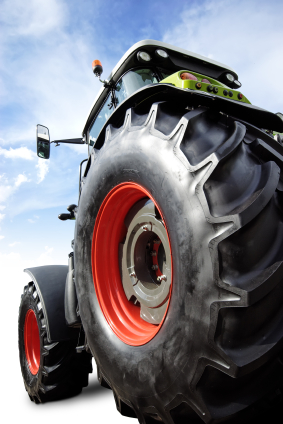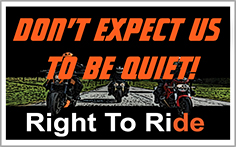 In May 2012 we reported on a BBC article concerning the prosecution of a farmer who had been fined for allowing muck from his fields to be dragged onto roads in the Portrush area. The BBC report said that this was one of the first cases of its kind to come before the courts.
In May 2012 we reported on a BBC article concerning the prosecution of a farmer who had been fined for allowing muck from his fields to be dragged onto roads in the Portrush area. The BBC report said that this was one of the first cases of its kind to come before the courts.
The farmer admitted causing mud and muck to be deposited on a road causing or likely to cause an obstruction or danger, although the farmer’s lawyer said the defendant had tried to clean up the road using a slurry tanker filled with water but this attempt was unsuccessful.
However is this action of prosecution, highlighting responsibility (in this case, farmers) to make sure our roads stay clear of mud and debris a province wide position from the responsible agencies in Northern Ireland.
Earlier this year a motorcyclist from Co. Armagh contacted Right To Ride to ask: “Do you know who/which statutory body has responsibility for ensuring road surfaces in NI are safe and do not present an undue hazard to motorcyclists or other road users”?
Our response was, “Yes it is the responsibility of Roads Service under the Department For Regional Development (DRD).” However we would add now that it is the responsibility of road users and others not to create these hazards in the first place and clean them up where necessary.
The riders issue was that the rural roads close to where he lives are covered in muck/slurry/soil and debris left in the rider’s opinion by lazy, inconsiderate farmers.
The rider commented, “As I’m sure you understand, this is not a good thing for motorcyclists but, unfortunately, no-one will tackle the problem. This country seems to have a public/civil servant for every occasion but try to find one willing to take responsibility for anything.”
Contacting The Minister
The rider had emailed the DRD Minister Danny Kennedy in August 2012 regarding the maintaining of roads the Ballylane Road, Gleanne and the removal of mud and debris from roads.
A reply was sent from the Chief Executive of Roads Service, Mr Geoff Allister who has since retired from the post. He wrote “Firstly I should explain that under Article 94(1) ofthe Roads (NI) Order 1993, anyone who deposits or allows anything to be deposited on a road which is likely to cause an obstruction or danger, shall be guilty of an offence and held liable, on summary conviction, to a fine not exceeding £200. Under Article 95(1) of the above Order, anyone in charge of a vehicle on a road, who permits any solid or liquid matter from the vehicle, to be spilled or dropped onto the road surface, in such a quantity so as to create a danger or substantial inconvenience, shall be guilty of an offence and held liable, on summary conviction, to a fine not exceeding £1000.”
He further explained that, “The responsibility for taking any prosecution under both these offences lies with the PSNI. However, I understand that deposits on the road must be such that they are deemed by the PSNI to represent a danger to persons using the road before proceedings are instituted.”
Concerning responsibility, the Chief Executive stated, “While the responsibility for any prosecution for deposits on the road lies with the PSNI, the objective of enforcement is, however, not so much to secure convictions and to impose penalties, as to restore the road condition to its usual condition, and/or to discourage other potential offenders.
To this end, Roads Service monitors rural roads on a regular basis and, where offenders can be clearly identified, they are instructed to clean a road, when local Roads Service staff become aware that it is unduly dirty. The PSNI is also informed, and if the offenders do not co-operate, the Police would consider taking action under the above 1993 Roads Order.
In certain circumstances, particularly in the interests of road safety, Roads Service may carry out whatever operations are necessary, to restore the road condition and may subsequently seek to recover costs from the offender as necessary.
I must stress that this is a discretionary power and there is no legal requirement for Roads Service to remove mud or debris from a road.
I can confirm that Article 7 of the Litter (Northern Ireland) Order 1994, as amended by the Clean Neighbourhoods and Environment Act (Northern Ireland) 2011, places a duty on District Councils in relation to the cleaning of roads. Within the Litter (NI) Order 1994, mud, soil, gravel etc. is defined as detritus.”
So regarding this last paragraph the cleanliness of the road is deemed a council role, although the boundary between the two authorities, as Roads Service would only have a duty to keep the roads clear.
Did This Help?
Did any of this help our rider with his specific issue?
In a word – no and as our rider found out as regards a willingness to take responsibility, this can become a blurred area in practice.
The Chief Executive in his letter said that, “I can confirm that following your report of dirt on Ballylane Road, it was inspected by local Roads Service officials. This indicated that although the road was dirty, it was deemed not to be a hazard to road users and no further action was considered necessary.”
However although the procedures set out in the Chief Executive letter is quite correct we have to wonder if when the road was inspected that the additional risks for a motorcyclist had been considered.
So the rider has been left frustrated with the situation as it would appear to him that the road was genuinely dangerous for bikes and that no-one wanted to take responsibility for cleaning up the mess in this instance.
What About The Farmers?
As this issue concerns farmers, we thought we would contact the UFU (The Ulster Farmers’ Union) who represent 11,500 members who are farmers and growers in Northern Ireland.
Their response does take on board the contentious issue of Mud/debris on roads for road users and farmers.
The UFU has published a guide to agricultural vehicles on the road which was produced with agreement of DVA(Driver and Vehicle Agency)/HMRC (HM Revenue & Customs )/HSENI (Health and Safety Executive Northern Ireland)/NIEA (Northern Ireland Environment Agency)/PSNI (Police Service of Northern Ireland ) which is available free to all of the UFU 11,500 members.
The guide has a specific section that covers mud on the road which states:
- ‘The Roads (NI) Order and Road Traffic (NI) Order Legislation imposes a Duty of Care on everyone to ensure they do not cause mud or other materials to be deposited on roads. The build-up of mud etc. can be potentially dangerous to motorists therefore affected roads must be cleaned regularly.
- Any person who wilfully or recklessly allows filth, dirt, lime particles or other offensive matter to run, flow or drift onto a road from any adjoining land may be liable for prosecution.
- Inevitably, during certain agricultural activities debris will occur. During the agricultural operation farmers must take all reasonable steps to mitigate the hazard to other road users e.g. erecting sufficient signage to warn other road users of potential hazards. Roads must be cleaned as soon as possible.’
The UFU in their response commented, “During field works (and particularly given our wet climate!), unfortunately it is inevitable and unavoidable that mud/debris will be deposited on roads. When field works are taking place farmers/contractors tend to have to enter and exit field entrances frequently over the duration of operation.”
A couple of paragraphs in their response which may be queried by riders is, “The vast majority farmers take the issue of road safety (for all road users) very seriously and will take all reasonable measures to prevent road traffic accidents including cleaning affected roads as soon as possible following field operations.”
“Most farmers/agricultural contractors will erect signage during agricultural field operations and it is important that all other road users take heed of these warnings. “
The UFU has taken measures to advise its members and to point out their legal responsibilities.
However whether these are enacted on or any moral obligation to beware of any consequences for the safety of other road users caused by their inaction is down to the individual.
Responsibility
As we live in a province, that the UFU says that, agriculture is the biggest industry in rural areas, it is inevitable that farm operations, most of which are seasonal, will be more prevalent on rural roads at certain times of the year so perhaps there is a need to warn other road users on what to expect at certain times.
These farm operations are possibly something that riders need to be aware of while riding rural roads.
Slurry Spreading – Tractors and slurry tankers – Spring/Autumn (particularly coming up to the commencement of the slurry spreading, closed period of 15th Oct)
Silage – tractors and silage trailers and self-propelled harvesters – May – August
Arable harvest – Tractors with long trailers, combine harvesters – August – October
Maze harvest – Tractors and trailers, self-propelled harvesters – Oct/Nov.
Potato harvest – Self-propelled potato harvesters, tractors and trailers – Sept – Nov.
The UFU advice that during harvesting that, “To mitigate against any potential hazard to other road users, sufficient warning (possible through signage) must be given of any potential hazards e.g. farm traffic entering/exiting secluded field entrances during harvesting.”
Movement of dairy cows – in some cases dairy cows have to be moved on the road to access pasture away from the farm unit, these movements are frequent (at least twice a day)- May-Sept.
Hedge Cutting – if the hedge is impairing visibility of road users or obstructing members of the public, posing any risk of impairing visibility at junctions, crossroads, sight-lines or road signs then hedge trimming is necessary. If not then hedge trimming must be delayed at least until after 31 August.
These are a general estimate of times, because farming is so weather dependent that these will vary.
Also there will be other forms of movement that are specific to certain areas such as in North Down/Ards/Armagh as there would be a lot of vegetable producers.
In Conclusion
In presenting the information from the UFU it is not our intention for this to be an excuse for farmers not to take responsibility, these are guidelines which are supported by rules and legislation.
As riders we should be aware of what rural roads hold.
Roads Service – although the previous Chief Executive in his letter stated that, “In certain circumstances, particularly in the interests of road safety, Roads Service may carry out whatever operations are necessary, to restore the road condition and may subsequently seek to recover costs from the offender as necessary. I must stress that this is a discretionary power and there is no legal requirement for Roads Service to remove mud or debris from a road.”
However one of the main elements of the Roads Service position on overall performance and operations is, “To improve, maintain and manage the road network in Northern Ireland in order to facilitate, in a sustainable way, the safe movement of people, goods and services for the social and economic benefit of all people in Northern Ireland.”
In this instance of mud and debris on the road in Armagh there appears to have been a major glitch in communication between a rider and the Roads Service.
This should not put riders off from reporting Mud and Debris on the road and in most circumstances the system of on-line reporting, contacting local Roads Services Offices or the PSNI directly, will work to everybody’s satisfaction.
Information & Links
UFU (The Ulster Farmers’ Union) – www.ufuni.org
Link to Roads Service – report a road fault on Right To Ride – Click Here
Direct link to report faults and details of Roads Service offices are now on the nidirect government services website – Click Here
The on line form can be used to report a number of common issues to Roads Service:damaged manhole or gully lid
debris on road or footway
drainage or flooding problem
excessive weed growth
faulty illuminated signs or bollards
missing kerbs
mud on road
obstruction on road or footway
pothole in road or footway
street light not working
traffic signals not working
uneven surface on footway
by using “Other” you can report a problem not covered in this list
All Northern Irish motorcyclists have the right to clean roads! – Facebook – Click Here
Mucky Road Fine – Click Here
As we have said, “Contaminates on the road are a significant danger for motorcyclists especially diesel spillages, our advice is to report these to the PSNI.”



Here, here!
Country roads with farmer’s tractors leaving wads of muck across the road to skid on. Builder’s plant machinery does much the same at site road entrances and exits. Diesel & oil from trucks and buses; just have a look a look at the road on any bus route when its raining, you can see a trail of both throughout. Loose gravel spilt on to roads, (unluckily it always seems to be on bends for some reason), it must be from quarry trucks. Potholes virtually everywhere. White lines, signage and bloody arrows painted all over the road to slip on. We dont need them! Slippy manholes on bends are a particular annoyance of mine.
This sort of nonsense together with the already dreadful road surface quality overall in N.I. makes a lethal combination. The wet weather and flooding during the winter months made it madness to ride on the road if you commute on a bike. You didnt know what was coming next.
Thanks for highlighting these issues for bikers. We need to speak out.
Regards,
Jay.
A similar problem is encountered here in England. In a recent case of the death of a motorcyclists a judge decided to say that a motorcyclists or other road users should have been aware of the dangers of riding on country roads and that was the domain of the farmers . failure to understand this led to the accident and therefore it was the fault of the rider.
We have legislation under the road traffic acts so that action could be brought against the farmer or other persons who may be guilty of these offences. However the authorities are reluctant to take action and basically we just want the road to clear of these dangers and where they are likely to occur to have provision there and then to deal with need at the time and not to allow it to remain for any length of time.
Just keep on complaining to the police and to the local authorities. become a nuisance if needs be but make the authorities aware that we will not stand for it and that the matter should be actioned as a matter of urgency
A further consideration should be the illegal use of tractors and farm accessories attached that constitute a danger to other road users under provisions of legislation. In England the Con and Use Regs made under the RTActs and also the Road Vehicles[Authorisation of Special Types] [ General] Order 2003 Informational sheet obtainable from Department for Transport [ dangerous projections]
Useful reading.